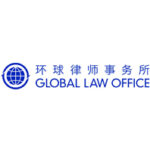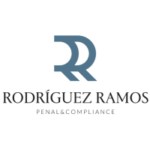-
What is the legal framework (legislation/regulations) governing bribery and corruption in your jurisdiction?
Bribery and corruption offences are foreseen in the Portuguese Criminal Code (PCC). However, there are additional laws that also govern bribery and corruption, including: law no. 34/87, of July 16th, which foresees crimes regarding political office holders; law no. 20/2008, of April 21st, which criminalizes bribery and corruption in international trade and in the private sector; and law no. 14/2024, of January 19th, which governs bribery and corruption in the field of sports.
Concurrently, there is also the General Regime for the Prevention of Corruption (GRPC), enacted on December 9th (Decree-Law no. 109-E/2021, of December 9th), which requires the adoption of a set of preventive measures by Portuguese private legal persons, branches, public legal persons and administrative services with 50 or more employees, namely the adoption and implementation of compliance programmes aimed at preventing, detecting and managing potential risks of bribery and corruption within the scope of their activities.
-
Which authorities have jurisdiction to investigate and prosecute bribery and corruption in your jurisdiction?
In Portugal, bribery and corruption are investigated by the Public Prosecutor’s Office, generally assisted by the Judiciary Police – specifically, the National Unity Against Corruption. With respect to the investigation and the prevention of violent, highly organised or particularly complex crimes, however, the competent body in the Public Prosecutor’s Office is the Central Department of Criminal Investigation and Prosecution, or ‘DCIAP’.
-
How is ‘bribery’ or ‘corruption’ (or any equivalent) defined?
Portuguese law criminalises, in various ways, dishonest or fraudulent behaviour by those in positions of power. Such dishonest or fraudulent behaviour may or may not involve soliciting or receiving a financial or non-financial advantage. Similarly, the behaviour of those who attempt to corrupt those in positions of power is also criminalised.
There are several criminal offences that should be considered in this context for, in one way or another, pursuing the said purpose. Some involve dishonest behaviours, others involve receiving/offering or promising undue advantages, and others involve both scenarios.
Regarding criminal offences that involve dishonest behaviour by those in positions of power and undue advantages:
- Portuguese law distinguishes between active and passive corruption in the public sector. Passive corruption (‘corrupção passiva’) is the practice, by a public official/political office holder, of any act or omission contrary to the duties of his/her office, when he/she receives, in exchange, for himself/herself or for a third party, a pecuniary or non-pecuniary advantage. Active corruption (‘corrupção ativa’) is the act of giving or promising to give a public official/political office holder, or a third party appointed by or with the knowledge of that official, a financial or non-financial advantage in order for that official to perform an act or omission contrary to the duties of his/her office.
Passive and active corruption in the private sector are similarly defined, with the difference that the advantage in point is offered or received in order for the private sector agent to violate their functional duties through an act or omission.
Passive and active corruption are also similarly defined in the field of sports. In this case, an act or an omission intended to alter or falsify the result of a sports competition performed (or to be performed) by a sports agent is at stake.
Differently, only active corruption (and not also passive corruption) hampering international trade is punished in Portugal. This criminal offence targets anyone who, by themselves or through their consent or ratification, namely through an intermediary, gives or promises to a national or foreign official, to a member of an international organization, to a national or foreign political office holder, or to a third party with knowledge of the former, an undue financial or non-financial advantage, in order to obtain or retain a business, contract or other undue advantage in international trade.
It follows from the foregoing that, in Portugal, the term ‘corrupção’ (in Portuguese) is slightly different and less broad than the term ‘corruption’ (in English), as it entails the existence of a bribe or promise thereof.
- The crime of passive influence peddling (‘tráfico de influência passivo’) is practiced by anyone who, by themselves or through an intermediary, with their consent or ratification, requests or accepts, for themselves or for a third party, a pecuniary or non-pecuniary advantage, or the promise thereof, in order to abuse their influence, real or supposed, with any national or foreign public entity. The crime of active influence peddling (‘tráfico de influência activo’) punishes anyone who, either directly or through an intermediary, gives or promises the aforementioned advantage.
This criminal offence is also foreseen in the field of sports, namely when it concerns exerting influence, real or supposed, on any sports agent, with the aim of obtaining any decision intended to alter or distort the result of a sports competition.
- The crime of economic participation in business (‘participação económica em negócio’) targets public officials/political office holders who, with the intention of obtaining, for themselves or for a third party, illicit economic gain, harm the financial interests that they are responsible for managing, supervising, defending, or carrying out in a legal transaction. It also targets public officials/ political office holders who receive, for themselves or for a third party, a financial advantage as a result of a civil legal act relating to interests that they had, by virtue of their duties, at the time of the act, in whole or in part, at their disposal, under their administration or supervision, even if without causing them harm.
Regarding criminal offences that involve undue advantages:
- The crime of passive receipt of undue advantage (‘recebimento indevido de vantagem passivo’) targets public officials/political office holders who, in the performance of their duties or because of them, by themselves or through an intermediary, with their consent or ratification, request or accept, for themselves or for a third party, a pecuniary or non-pecuniary advantage that is not due to them. In the crime of offer or receipt of undue advantage it is sufficient that the said advantage is not due to the public official/political office holder, not requiring that there is an action or omission committed due to the advantage. Portugal law also punishes whoever offers or promises such undue advantage to a public official/political office holder (‘recebimento indevido de vantagem ativo’).
This criminal offence is also foreseen in the field of sports, when a sports agent receives or asks for an undue financial or non-financial advantage or a promise of it.
Regarding criminal offences that involve dishonest behaviour by those in positions of power:
- The crime of malfeasance or prevarication (‘prevaricação’) targets political office holders who knowingly conduct or decide a proceeding in which they intervene in the exercise of their duties against the law, with the intention of thereby harming or benefiting someone.
This criminal offence also targets public officials acting in the context of procedural investigations, judicial proceedings, administrative offences, or disciplinary proceedings.
- The crime of denial of justice (‘denegação de justiça’) targets political office holders who, in the exercise of their duties, refuse to administer justice or to apply the law as they should under the terms of their competence and upon a request.
This criminal offence also targets public officials acting in the context of procedural investigations, judicial proceedings, administrative offences, or disciplinary proceedings.
- The crime of embezzlement (‘peculato’) takes place when a public official/political office holder unlawfully appropriates or uses, for his/her own benefit or for the benefit of another person, money or any movable or immovable property or animal, whether public or private, which has been given to him/her, is in his/her possession or is accessible to him/her as a result of his/her duties. This criminal offence also targets public officials/political office holders who, without special reasons of public interest justifying it, allocate public money for a public use other than that for which it is legally intended (‘peculato de uso’).
- The crime of abuse of power (‘abuso de poder’) targets public officials/political office holders who abuse their powers or violate the duties inherent to their position with the intention of obtaining an unlawful benefit for themselves or for a third party or of causing harm to another person.
-
Does the law distinguish between bribery of a public official and bribery of private persons? If so, how is 'public official' defined? Is a distinction made between a public official and a foreign public official? Are there different definitions for bribery of a public official and bribery of a private person?
Portuguese law distinguishes between bribery of a public official, including in international trade, and bribery of private persons. Additionally, Portuguese law also distinguishes bribery of political office holders. Please see point 3., above.
Article 386 of the PCC defines public official in very broad terms. The term public official includes, among others, civilian and military public employees, anyone who holds public office, anyone who, even provisionally or temporarily, regardless of payment, voluntarily or compulsorily, has been called upon to perform or participate in the public administrative or judicial function, judges of several Courts, members of the Public Prosecutor’s Office, the Ombudsman, members of the Superior Council of the Judiciary, arbitrators, jurors, experts, technicians who assist the court, notaries, anyone who, even provisionally or temporarily, regardless of payment, voluntarily or compulsorily, performs or participates in the performance of a public administrative function or exercises functions of authority in a legal person of public utility, including private social solidarity institutions, and anyone who performs or participates in the performance of public functions in a public association. Some positions may be deemed equivalent to that of a public official, such as is the case of members of public companies or companies which otherwise hold a certain public share or interest, as well as some public officials of other nations.
Article 3 of the law no. 34/87, of July 16th, defines political office holder as being the President of the Portuguese Republic, the President of the Portuguese Parliament, a member of the Portuguese Parliament; a member of the Portuguese Government, a member of the European Parliament, the Representative of the Republic in Azores and Madeira (Portuguese autonomous regions), a member of the governing body of Azores and Madeira, as well as a member of a representative body of a local authority. According to law no. 34/87, of July 16th, holders of political office in organizations governed by public international law, as well as holders of political office in other States, regardless of nationality and residence, shall be treated as holders of national political office when the offence has been committed, in whole or in part, in Portuguese territory.
It is worth noting that, as foreseen in article no. 28(1) of the PCC, in crimes committed by more than one person, if any of the perpetrators is a public official, non-public officials who acted in accord with them may be charged with crimes which, in general cases, only apply to public officials. The same happens when non-political office holders commit a crime jointly with political office holders.
As will be explained in point 7. below, definitions of crimes and corresponding criminal consequences and sanctions may differ depending on whether the perpetrator (or the interlocutor of the perpetrator) is or is not a public official or a political office holder.
-
Who may be held liable for bribery? Only individuals, or also corporate entities?
Both individuals and companies may be held liable for crimes of bribery and corruption under anti-corruption rules in Portugal.
For companies to be held criminally liable, the offence must have been carried out either by someone who holds a position of leadership, acting under the company’s name and on its behalf (i.e., members of its corporate bodies, legal representatives or individuals who hold control over the company’s activity), or by someone else who acts under their supervision, if a breach of supervision or control duties has occurred (article 11 PCC).
-
What are the civil consequences of bribery and corruption offences in your jurisdiction?
Both natural and legal persons convicted of bribery and corruption offences may incur in civil responsibility for damages towards the State. Correspondingly, they may be sentenced to indemnify the State in the amount of those damages. Damages may include property damages (such as public revenue which is lost) and moral damages (such as reputational damage to public institutions).
-
What are the criminal consequences of bribery and corruption offences in your jurisdiction?
In this answer, where criminal consequences of bribery and corruption in Portugal are addressed, all criminal offences referred to in point 3. ( above) are considered.
Regarding criminal offences that involve dishonest behaviour by those in positions of power and undue advantages:
- Active corruption in the public sector is punishable between 1 and 5 years of imprisonment. The penalty may be set between 1 month and 3 years, or with a fine of up to 360 days’ worth, if no duties of the public official have been breached. Passive corruption in the public sector is punishable between 1 and 8 years of imprisonment or between 1 month and 5 years, if the act or omission is not contrary to the duties of the public official.
- Active corruption related to political office holders is punishable with a penalty that may be set between 2 and 5 years of imprisonment. The penalty may be set between 1 month and 5 years, if no duties of the public official have been breached. If the case involves active corruption committed by a political office holder towards another political office holder, the penalty for the crime is the one provided for passive corruption of political office holders. Passive corruption related to political office holders is punishable with a penalty that may be set between 2 and 8 years of imprisonment, or between 2 and 5 years, if the act or omission is not contrary to the duties of the political office holder.
- Active corruption in the private sector is punishable with a penalty that may be set between 1 month and 3 years of imprisonment or with a fine in general terms. When the act or omission might generate a disruption in competition or damage to third parties’ property rights it is punishable with a penalty that may be set between 1 month and 5 years of imprisonment or with a fine up to 600 days’ worth. Passive corruption in the private sector is punishable with a penalty that may be set between 1 month and 5 years of imprisonment or with a fine up to 600 days’ worth. When the act or omission might generate a disruption in competition or damage to third parties’ property rights it is punishable between 1 and 8 years of imprisonment.
- Active corruption prejudicial to international trade is punishable with a penalty that may be set between 1 and 8 years.
- Active corruption in the field of sports is punishable with a penalty that may be set between 1 and 5 years. Passive corruption in the field of sports is punishable with a penalty that may be set between 1 and 8 years.
- Active influence peddling in the public sector is punishable with a penalty that may be set between 1 month and 3 years of imprisonment, or with a fine, if it has resulted in an unlawful act being committed, and between 1 month and 2 years, or with a fine, if the act has been lawful. Passive influence peddling in the public sector is punishable with a penalty that may be set between 1 and 5 years of imprisonment, if it has resulted in an unlawful act being committed, and between 1 month and 3 years, if the act has been lawful.
- Active influence peddling in the sports field is punishable with a penalty that may be set between 1 month and 5 years of imprisonment, or with a fine. Passive influence peddling in the sports field is punishable with a penalty that may be set between 1 and 5 years of imprisonment.
- Economic participation in business in the public sector is punishable with a penalty that may be set between 1 month and 5 years of imprisonment, or up to 6 months, or with a fine, depending on what type of conduct was performed. Economic participation in business related to political office holders is punishable in the same terms.
Regarding criminal offences that involve undue advantages:
- Active receipt of undue advantage in the public sector is punishable with a penalty that may be set between 1 and 3 years of imprisonment, or with a fine. Passive receipt of undue advantage in the public sector is punishable between 1 and 5 years of imprisonment, or with a fine.
- Active receipt of undue advantage regarding political office holders is punishable with a penalty that may be set between 1 month and 5 years of imprisonment, or with a fine. Passive receipt of undue advantage regarding political office holders is punishable with a penalty that may be set between 1 and 5 years of imprisonment.
- Active receipt of undue advantage in the sports field is punishable with a penalty that may be set between 1 month and 3 years of imprisonment, or with a fine. Passive receipt of undue advantage in the sports field is punishable between 1 month and 5 years of imprisonment, or with a fine.
Regarding criminal offences that involve dishonest behaviour by those in positions of power:
- Denial of justice and prevarication in the public sector is punishable with a penalty that may be set between 1 month and 2 years of imprisonment, or with a fine; 1 month and 5 years of imprisonment; 1 and 8 years of imprisonment; or 1 month and 2 years of imprisonment, or with a fine, depending on the specific conduct performed.
- Malfeasance or prevarication regarding political office holders is punishable with a penalty that may be set between 2 and 8 years of imprisonment.
- Denial of justice regarding political office holders is punishable with a penalty that may be set between 1 and 18 months, or with a fine.
- Embezzlement in the public sector is punishable with a penalty that may be set between 1 and 8 years, 1 month and 3 years, or 1 month and 1 year of imprisonment, or with a fine, depending on the specific conduct performed.
- Embezzlement regarding political office holders is punishable with a penalty that may be set between 3 and 8 years, 1 and 4 years, or 1 month and 2 years of imprisonment, or with a fine, depending on the specific conduct performed.
- Abuse of power in the public sector is punishable with a penalty that may be set between 1 month and 3 years, or with a fine.
- Abuse of power regarding political office holders is punishable with a penalty that may be set between 6 months and 3 years, or with a fine.
When the offenders are legal entities, prison sentences are converted into fines. According to the law, the minimum and maximum limits of fines applicable to legal persons are determined by reference to the prison sentence provided for natural persons. One month of imprisonment corresponds to 10 days of fines for legal persons. Each day of fines corresponds to an amount between € 100 and € 10,000, which the court sets according to the economic and financial situation of the legal person and its expenses with employees (article 90-B PCC).
Ancillary penalties – both to individual and legal persons – may be applied.
In addition, it is relevant to note that a judicial decision, in criminal proceedings, may declare that the tools used for committing an offence, as well as the revenue or advantages illicitly obtained through the offence may be declared property of the State, as part of a sentencing decision, in line with articles 109 and 110 of the PCC. It is furthermore possible, under law no. 5/2002, of January 11th, to presume that any assets of the defendant which cannot be proven to derive from their licit revenue has an illicit origin and, therefore, are subject to be declared property of the State.
-
Does the law place any restrictions on hospitality, travel and/or entertainment expenses? Are there specific regulations restricting such expenses for foreign public officials? Are there specific monetary limits for such expenses?
The law states that the only exception to the unlawfulness of the act of receiving or requesting an advantage resides in its social adequacy or compliance with social norms.
More recently, however, the Portuguese Government’s Code of Conduct established that members of government may not receive gifts or invitations valued at or above € 150 (which are presumed to compromise their impartiality and integrity), unless they are deemed to be required by social courtesy or diplomatic usage, and provided that they are extended in a manner that is compatible with the institutional nature of the invitation as well as with the relevance of the office and position of the invitee, following a case-by-case analysis.
This € 150 threshold has since then been serving as a general trend in connection with hospitality, travel and/or entertainment expenses that are to be extended to public entities, administrative services and public officials, having been included in their respective codes of conduct as a general principle.
-
Are political contributions regulated? If so, please provide details.
Political contributions are regulated under law no. 19/2003, of 20th of June, which sets the financing of political parties. It distinguishes between proper and unproper/forbidden donations. Article 7 defines the maximum amount of pecuniary donations by a natural person at around €13.000 in 2025, and states that these should be paid by check or bank transfer. Donations in species follow the same rule, being valued according to their market value.
Article 8 expressly bars political parties from receiving donations or loans from legal persons (except for loans from credit institutions and financial companies), as well as includes rules against circumventing these norms, such as enforcing that any services for political parties must be paid at market rates.
-
Are facilitation payments prohibited or regulated? If not, what is the general approach to such payments?
Given that they fall outside the scope of social customs, facilitation payments are expressly forbidden.
-
Are there any defences available to the bribery and corruption offences in your jurisdiction?
There are no specific defences to a corruption allegation, which need to be countered on a case-by-case basis.
-
Are compliance programs a mitigating factor to reduce/eliminate liability for bribery and corruption offences in your jurisdiction?
As mentioned above (point 5.), companies may be held criminally liable for crimes committed by one of its employees as a result of a breach of the supervisory or control duties incumbent upon the persons who hold a leading position therein.
As such, if in a given criminal investigation the company manages to provide evidence that no such breach occurred, or that the employee in question disobeyed direct instructions that had been given to him, its criminal liability may be excluded.
Moreover, the application of penalties is highly related to the adoption of compliance programs by the companies. The court may particularly mitigate the penalty by considering the circumstance that the legal person has adopted and implemented, prior to the commission of the crime, an appropriate compliance program to prevent the commission of the crime or other crimes of the same kind. On the other hand, the court may substitute the fine by an alternative penalty that adequately and sufficiently fulfils the purposes of the punishment, which may constitute, in particular, the adoption or implementation by the corporate body of an adequate compliance program.
In determining the amount of the penalty, the circumstance of the legal person having adopted and implemented, after the commission of the offence and up to the date of the court hearing, a compliance program with control and surveillance measures suitable for preventing crimes of the same nature or for significantly reducing the risk of their occurrence may be taken into consideration.
-
Has the government published any guidance advising how to comply with anti-bribery and corruption laws in your jurisdiction?
As mentioned above (point 1.), the GRPC has clarified the role of companies in preventing bribery and corruption offences. Moreover, the Government’s code of conduct, mentioned in point 8. above, sets the tone for the private sector, while not being directly enforceable, regarding transparency and compliance obligations.
The MENAC frequently publishes guidelines on several topics related to the GRPC – namely, on the designation of a chief compliance officer, on the expected content of codes of conduct and the plan for prevention of corruption and connected crimes, on training plans, among others. These are publicly available at the MENAC website: https://mec-anticorrupcao.pt.
-
Are mechanisms such as Deferred Prosecution Agreements (DPAs) or Non-Prosecution Agreements (NPAs) available for bribery and corruption offences in your jurisdiction?
No, there are no such diversion mechanisms in the Portuguese legal order, as, historically, there is no tradition of opportunities for negotiation of penalties in Portuguese legal system. However, some opportunities for diversion from trial exist, namely through the commonly used institute of the ‘temporary suspension of the process’.
The general regime of the mechanism of ‘temporary suspension of the process’ is foreseen in article 281 of the Portuguese Code of Criminal Procedure (PCCP). The mechanism is only available for crimes punishable with imprisonment penalties of up to 5 years, which may include several crimes of bribery and corruption (please see point 7. above).
Through this institute, the process halts at the investigation stage, not proceeding to trial. The application of the mechanism depends on the acceptance by the defendant of a set of injunctions presented by the authorities at office. Both the Public Prosecutor, the Investigating Judge and the victim (if there is any) should agree with the implementation of this mechanism.
Please be informed that article 9 of Law no. 36/94, of September 29th, provides for an exceptional regime of ‘temporary suspension of the process’, specially applied to the crimes of corruption and receipt of undue advantage, which can be punishable with an imprisonment sentence of more than 5 years. The application of this special regime depends on the agreement of the Public Prosecutor, the investigating judge, and the defendant regarding the proposed injunctions and their sufficiency in the specific case, and on the defendant having contributed decisively to the discovery of the truth.
It is important to highlight that when legal persons are at stake, the injunctions presented by the Public Prosecutor’s Office, within the context of the ‘temporary suspension of the process’, can entail the adoption of a compliance program, which would be, of course, monitored by judicial authorities.
Furthermore, specifically in crimes of corruption in the public sector, if defendants cooperate with investigations, contributing decisively for the discovery of truth, their penalty may be waived (article 374-B(2) of the PCC). A similar provision is foreseen for crimes of corruption by political office holders (article 19-A(2) of law no. 34/87, of July 16th). In other crimes such as embezzlement, economic participation in business and international or transnational economic and financial offences, defendants’ cooperation may herald a mitigation of the penalty (article 8 of Law no. 36/94, of September 29th). Crimes of corruption in international trade and the private sector are under a similar provision (article 5 of law no. 20/2008, of 21st of April).
-
Does the law in your jurisdiction provide protection to whistle-blowers? Do the authorities in your jurisdiction offer any incentives or rewards to whistle-blowers?
As aforementioned (point 14.), there are benefits in cooperation for defendants, and their penalty may be lowered or even waived. However, there are no further incentives, and exoneration is not possible.
In any case, in Portugal, there are several protections in place for whistleblowers. Law no. 93/2021, of December 20th (which transposed the EU Directive 2019/1937 of the European Parliament and the Council, issued on the 23rd of October 2019), sets out several rights and guarantees which benefit whistle-blowers – for example: the right to confidentiality, data privacy rights, measures to prevent retaliation, among others.
-
Does the law in your jurisdiction enable individual wrongdoers to reach agreement with prosecutors to provide evidence/information to assist an investigation or prosecution, in return for e.g. immunity or a reduced sentence?
There is no consensual or negotiated justice in the Portuguese legal order, as aforementioned in point 14. above.
In sum, currently, there is no guarantee that a penalty will be waived upon a defendant’s cooperation or even if they are whistleblowers. It is always the role of the competent judge to determine which sanction the defendant should incur in, taking into account their role in cooperating with the investigation. The temporary suspension of the process, summary trials and proceedings in certain minor offences, as well as mitigating or waiving penalties are, therefore, the potential benefits of cooperation.
-
How common are government authority investigations into allegations of bribery? How effective are they in leading to prosecutions of individuals and corporates?
For the list of authorities competent for investigating these crimes, please refer to point 2. above. The Court of Auditors is also able to audit and prosecute certain entities.
The 2024 report on national security1 has found that 1.281 defendants have been detained for economic or financial crimes. The year saw a slight decrease in the investigation of crimes of corruption and connected crimes.
The length of some criminal proceedings often hinders the effectiveness of said investigations. However, according to the most recent data from the Ministry of Justice2, 30% of those convicted of crimes of corruption in 2022 have been convicted of an effective penalty of imprisonment.
Regarding the activity of the MENAC, it is to be expected that they become more active in investigating administrative offences related to the prevention of corruptions, as well as that they cooperate with investigations of crimes of corruption and connected crimes.
Footnote(s):
1 Available at https://ssi.gov.pt/publicacoes/relatorio-anual-de-seguranca-interna.
2 Available at https://estatisticas.justica.gov.pt/sites/siej/pt-pt/Paginas/Corrupcao.aspx.
-
What are the recent and emerging trends in investigations and enforcement in your jurisdiction?
As is evident in many of the points contained in this brief, prevention has been the main focus of legal action surrounding crimes of bribery and corruption, especially since the GRPC has entered into force. This transfers to the private sector some of the responsibility in preventing these crimes and solidifies the need for corporate social responsibility, extending to the prevention of said offences.
There is furthermore the tendency to seek for efficient measures for recovering the assets which may have been the direct or indirect product of these crimes. Therefore, there is not only an emphasis on the moment before the crime, but also on the moment after the crime. Concerns with civil damages being restored to natural persons, legal persons or the State, as well as with appeasing social unrest regarding the prevalence of corruption are at the forefront of political and legislative concerns.
-
Is there a process of judicial review for challenging government authority action and decisions? If so, please describe the key features of this process and remedy.
Administrative decisions may be appealed, in general, through administrative proceedings, beginning with an administrative stage, in which the interested parties may be heard by the relevant body. Further on, there is the right to a judicial appeal, and potentially to an appeal to Central Administrative Courts or even to the Supreme Administrative Court. These proceedings follow the procedural rules in law no. 5/2002, of February 22nd.
-
Have there been any significant developments or reforms in this area in your jurisdiction over the past 12 months?
The organisational law on the MENAC has been altered by decree-law no. 70/2025, of April 29th, granting the MENAC more powers in preventing crimes of corruption through the monitoring of companies, as well as other functions. The MENAC had been instituted in 2021 but had experienced several setbacks in coming into effective force. As such, as legislation evolved, there was need to update their structure and attributes, which is still an ongoing process.
The current government has issued a proposed Agenda for Prevention of Corruption. They have furthermore opened this discussion to civil society by submitting it to public consultation. MFA Legal has replied to the consultation on this broad set of proposals, submitting several contributions on measures ranging from the declaration of loss of seized assets, collection of cyber-evidence, protection of whistleblowers, appeals, among other pressing topics3. Due to current political instability, it is unclear which of these proposed reforms will actually take place.
Footnote(s):
3 Available at https://www.mfalegal.pt/xms/files/MFA_LEGAL_-_Relatorio_Tecnico_-_Agenda_Anticorrupcao.pdf.
-
Are there any planned or potential developments or reforms of bribery and anti-corruption laws in your jurisdiction?
There are several planned developments or reforms in this field, which has been a highlighted area of action for the current government, and particularly for the Ministry of Justice. This follows a wider trend, with the previous government having issued a Strategy for the Prevention of Corruption for the period of 2020-2024, which brough forth several reforms.
It is worth noting that the MENAC has recently come into activity and it is to be expected that the entity takes on a more relevant role. It is also expected that they will begin consistently monitoring legal persons on their compliance with prevention of corruption regulations, as well as instituting administrative offence proceedings in this regard.
The Minister of Justice has also referred to the possibility of developing an autonomous mechanism for surveilling corruption offences happening at municipalities or otherwise strengthening an existing entity in order to fulfil that role.
The matter of regulating political lobbying has been suggested by this Government, as well as is suggested by several political parties’ programs for the coming election, and, as such, it is expected that this may be a matter of discussion.
-
To which international anti-corruption conventions is your country party?
Portugal is party to:
- The OECD convention on combating bribery of foreign public officials in International business transactions (1997), approved by Parliament Resolution no. 32/2000 and ratified by Presidential Decree no. 19/2000, both of March 31st;
- The UN convention against transnational organised crime (2000), approved by Parliament Resolution no. 32/2004 and ratified by Presidential Decree no. 19/2004, both of April 2nd;
- The UN convention against corruption (2003), approved by Parliament Resolution no. 47/2007 and ratified by Presidential Decree no. 97/2007, both of September 21st, as well as the additional protocol to the criminal law convention on corruption, approved by Parliament Resolution no. 1/2015 and ratified by Presidential Decree no 1/2015, both of January 2nd;
- The EU convention on the protection of the financial interests of the communities (1995) and its three protocols, all approved for ratification by Parliament Resolution no. 86/2000 and ratified by Presidential Decree no. 82/2000, both of December 15th;
- The treaty of the European Union on the fight against corruption involving officials of the European Communities or officials of Member States of the European Union (1997), approved by Parliament Resolution no. 72/2001 and ratified by Presidential Decree no. 58/2001, both of November 15th;
- The Council of Europe criminal law convention on corruption (1999), approved by Parliament Resolution no. 68/2001 and ratified by Presidential Decree no. 56/2001, both issued on the 26th of October.
-
Do you have a concept of legal privilege in your jurisdiction which applies to lawyer-led investigations? If so, please provide details on the extent of that protection. Does it cover internal investigations carried out by in-house counsel?
Yes, the Portuguese statute of the Portuguese Bar Association, approved by law no. 145/2015, « of September 09th, guarantees the right to professional secrecy in article 92. Professional secrecy may only be lifted with the approval of the competent organ of the Portuguese Bar Association.
The question of whether this extends to lawyer-led investigations, or even internal investigations carried out by in-house counsel has not often been raised, as these are not yet very common in Portuguese companies – for more information on this, please refer to point 26. below. In theory, professional secrecy covers all facts whose knowledge the lawyer obtains through their professional functions. Therefore, these should be included.
-
How much importance does your government place on tackling bribery and corruption? How do you think your jurisdiction’s approach to anti-bribery and corruption compares on an international scale?
The importance attributed by the government to tackling bribery and corruption is high. This applies to the current government – please refer to point 21. for more information – and to previous governments. Similarly, all political parties participating in the coming election include several measures targeting the prevention and sanctioning of bribery and corruption, in a manner much more prolific than in previous decades. Therefore, it is expected that it will be a priority for any government in years to come.
According to a study by Transparency International4, Portugal is placed in the 43rd place in the list of countries with negative perceptions of the combat to corruption, ranking higher than most EU counterparts. While this study looked into the perception of prevalence of corruption, and did not measure the social phenomenon of corruption itself, it demonstrates that a problem is identified by politicians and the general population. It is not likely that the emphasis on the prevention of corruption is lessened in the coming years, considering these circumstances.
Footnote(s):
4 Results available at https://www.transparency.org/en/cpi/2024?gad_source=1&gad_campaignid=15272914516&gclid=Cj0KCQjw5ubABhDIARIsAHMighZe1wUw3J5SPERACa6X0CsBknk53An7EYorWsP_f4y-ws17eVlm5jEaAmycEALw_wcB.
-
Generally, how serious are corporate organisations in your country about preventing bribery and corruption?
With the entry into force of the GRPC, companies are becoming gradually aware of their need for active prevention of bribery and corruption offences, including the adoption of a plan for the prevention of corruption and connected crimes, a code of conduct, the appointment of a compliance officer, the implementation of an adequate inhouse training program and a reporting channel for whistleblowing.
The MENAC has also made available a new online platform, in which all entities which are encompassed by the GRPC must register and submit their own policies and programs. It is expected that the MENAC will begin monitoring compliance with these recent obligations for companies in the near future and conduct inspections, leading to potential fines for lack of compliance.
It should be noted that members of the management body, managers of entities or the compliance officer, as well as those responsible for the management or supervision of specific areas of activity may be held personally liable for the administrative offences referred to when they commit the facts or when, knowing or having knowledge of their commission, they do not adopt the appropriate measures to put an immediate end to them.
-
What are the biggest challenges businesses face when investigating bribery and corruption issues?
Private investigations by companies are becoming a more common practice in Portugal. However, it remains that there are several unregulated aspects of these. Especially when it concerns collection of evidence, namely by accessing the email address of employees, these practices may contradict existing labour laws and data privacy regulations. Caselaw has often recognized that professional emails contain personal information as well, and that employers should not have indiscriminate access to these inboxes. Therefore, compliance with law no. 58/2019 of August 08th – the Portuguese data protection law – is mandatory, under penalty of potentially committing administrative or criminal offences. As for the latter, the crime of undue access may be at stake, as foreseen in article 6 of law no. 109/2009, of September 15th, regulating cybercrime.
Furthermore, compliance culture in companies in the Portuguese landscape is yet emerging, namely through the recent developments implemented as stated in point 25. above. Therefore, with private investigations, there is similarly no tradition of this culture, particularly in Portuguese companies, as opposed to foreign companies operating in Portugal. Lack of specialized personnel and of internal procedures for investigation is therefore quite common. However, high profile cases and administrative and criminal convictions of companies have highlighted the importance of acting swiftly in the event of a (potential) offence. Companies are increasingly aware of the economic, reputational and legal consequences of bribery and corruption offences.
The implementation of reporting channels will likely facilitate the collection of evidence on potential offences. As whistleblowers may submit reports anonymously, the abovementioned issues may partly be circumvented through these channels.
-
What are the biggest challenges enforcement agencies/regulators face when investigating and prosecuting cases of bribery and corruption in your jurisdiction? How have they sought to tackle these challenges? What do you consider will be their areas of focus/priority in the next 18 months?
For information on the investigative authorities for crimes of bribery and corruption in Portugal, please refer to point 2. above.
These authorities often face difficulties in obtaining evidence from different jurisdictions, a problem which extends to other forms of criminality. As crimes of bribery and corruption often have an international or transnational component, this challenge severely hinders investigations and causes delays to proceedings.
Another pervasive challenge is the lack of means and the complexity of some of these proceedings, with the subsequent creation of so-called ‘megaproceedings’ (‘megaprocessos’), including several defendants, large amounts of potential damages and information spanning several years in complex financial topics. In this type of proceedings, the length of proceedings is notorious. Authorities therefore face the challenge of offences reaching the statute of limitations and not being properly investigated and sanctioned. Defendants face the risk of withstanding a lengthy and expensive proceeding, even if they are acquitted, which violates their fundamental rights to a swift decision and to the presumption of innocence, among other rights, namely as are foreseen in the European Convention on Human Rights.
-
How have authorities in your jurisdiction sought to address the challenges presented by the significant increase of electronic data in either investigations or prosecutions into bribery and corruption offences?
As highlighted in point 27. above, so-called ‘megaproceedings’ often largely surpass indicative timings for the investigation stage, as well as face similar difficulties in the instruction phase (an optional phase of proceedings in which a judge determines if there is sufficient evidence that criminal offenses have been committed by the subjects), as well as the trial and appeal stages. These are often heightened by challenges in obtaining electronic data and cooperation between different jurisdictions.
For this purpose, it has become more common for multidisciplinary teams of public prosecutors, courts and specialized advisors to focus on this matter. Specialists in cybercrime and digital topics may be an asset of the Judiciary Police or the Public Prosecutor’s Office in this regard.
Overall, public funds have been increasingly allocated for this concerted effort, and the Public Prosecutor’s Office has created a centralized department for tackling cybercrime.
-
What do you consider will be the most significant bribery and corruption-related challenges posed to businesses in your jurisdiction over the next 18 months?
Political instability arises as the greatest challenge in the implementation of efficient bribery and corruption prevention and sanctioning measures. Short-termed governments are unable to lead their plans and proposals to fruition, and different political forces in power may imply a constant back and forth between measures, leading to adjusting costs for companies.
Another pressing challenge will be the monitoring of compliance with recent rules for companies with over 50 employees, as detailed in point 25. above. The MENAC is the competent entity for monitoring compliance and for initiating administrative offence proceedings on non-compliant entities. As the entity is fairly new, there is uncertainty regarding the impact this will have on the private sector, namely on whether the MENAC will take a more educational and communicative approach or rather will take a more monitoring and ‘tough’ approach. Companies will have to adjust quickly, namely being aware of new MENAC guidelines, which may imply the increased need for contracting specialized legal services or hiring specialized personnel.
-
How would you improve the legal framework and process for preventing, investigating and prosecuting cases of bribery and corruption?
As MFA Legal has previously suggested, when replying to the Government’s public consultation on proposed measures to combat bribery and corruption5, we have some recommendations regarding future developments.
In this matter, as well as overall, the right to appeal of defendants should be guaranteed in any policy which may further restrict their rights. The rights of third parties who own or are in possession of assets which are deemed to be connected to these offences must also be explicitly protected. In this respect, it is also essential to make appeals to the Constitutional Court more accessible, namely by clarifying the admissibility criteria for such appeals. In fact, the lack of clarity on these criteria often leads to the rejection of appeals.
Regarding private investigations, as well as contributions from whistleblowers, modes of obtaining licit evidence in such endeavours should be clarified. This will effectively help ensure that any offence is readily detected, and that evidence is collected in close proximity to the date of the event(s). Concerning the collection of digital evidence, we highlight that judicial overview should be guaranteed at any stage.
Other measures may include halting the increasing state bureaucracy, namely in municipalities, by simplifying procedures, namely through digitalisation. Furthermore, the remuneration of public officials and politicians, as well as conditions for public employees or service providers to the State could be reviewed. Finally, strengthening the human and otherwise material means of state entities is essential for the swift investigation and prosecution of these offences.
Footnote(s):
5 Available at https://www.mfalegal.pt/xms/files/MFA_LEGAL_-_Relatorio_Tecnico_-_Agenda_Anticorrupcao.pdf
Portugal: Bribery & Corruption
This country-specific Q&A provides an overview of Bribery & Corruption laws and regulations applicable in Portugal.
-
What is the legal framework (legislation/regulations) governing bribery and corruption in your jurisdiction?
-
Which authorities have jurisdiction to investigate and prosecute bribery and corruption in your jurisdiction?
-
How is ‘bribery’ or ‘corruption’ (or any equivalent) defined?
-
Does the law distinguish between bribery of a public official and bribery of private persons? If so, how is 'public official' defined? Is a distinction made between a public official and a foreign public official? Are there different definitions for bribery of a public official and bribery of a private person?
-
Who may be held liable for bribery? Only individuals, or also corporate entities?
-
What are the civil consequences of bribery and corruption offences in your jurisdiction?
-
What are the criminal consequences of bribery and corruption offences in your jurisdiction?
-
Does the law place any restrictions on hospitality, travel and/or entertainment expenses? Are there specific regulations restricting such expenses for foreign public officials? Are there specific monetary limits for such expenses?
-
Are political contributions regulated? If so, please provide details.
-
Are facilitation payments prohibited or regulated? If not, what is the general approach to such payments?
-
Are there any defences available to the bribery and corruption offences in your jurisdiction?
-
Are compliance programs a mitigating factor to reduce/eliminate liability for bribery and corruption offences in your jurisdiction?
-
Has the government published any guidance advising how to comply with anti-bribery and corruption laws in your jurisdiction?
-
Are mechanisms such as Deferred Prosecution Agreements (DPAs) or Non-Prosecution Agreements (NPAs) available for bribery and corruption offences in your jurisdiction?
-
Does the law in your jurisdiction provide protection to whistle-blowers? Do the authorities in your jurisdiction offer any incentives or rewards to whistle-blowers?
-
Does the law in your jurisdiction enable individual wrongdoers to reach agreement with prosecutors to provide evidence/information to assist an investigation or prosecution, in return for e.g. immunity or a reduced sentence?
-
How common are government authority investigations into allegations of bribery? How effective are they in leading to prosecutions of individuals and corporates?
-
What are the recent and emerging trends in investigations and enforcement in your jurisdiction?
-
Is there a process of judicial review for challenging government authority action and decisions? If so, please describe the key features of this process and remedy.
-
Have there been any significant developments or reforms in this area in your jurisdiction over the past 12 months?
-
Are there any planned or potential developments or reforms of bribery and anti-corruption laws in your jurisdiction?
-
To which international anti-corruption conventions is your country party?
-
Do you have a concept of legal privilege in your jurisdiction which applies to lawyer-led investigations? If so, please provide details on the extent of that protection. Does it cover internal investigations carried out by in-house counsel?
-
How much importance does your government place on tackling bribery and corruption? How do you think your jurisdiction’s approach to anti-bribery and corruption compares on an international scale?
-
Generally, how serious are corporate organisations in your country about preventing bribery and corruption?
-
What are the biggest challenges businesses face when investigating bribery and corruption issues?
-
What are the biggest challenges enforcement agencies/regulators face when investigating and prosecuting cases of bribery and corruption in your jurisdiction? How have they sought to tackle these challenges? What do you consider will be their areas of focus/priority in the next 18 months?
-
How have authorities in your jurisdiction sought to address the challenges presented by the significant increase of electronic data in either investigations or prosecutions into bribery and corruption offences?
-
What do you consider will be the most significant bribery and corruption-related challenges posed to businesses in your jurisdiction over the next 18 months?
-
How would you improve the legal framework and process for preventing, investigating and prosecuting cases of bribery and corruption?



















